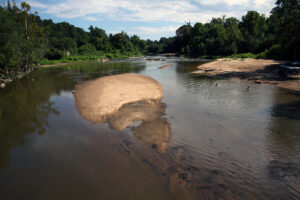News
Riverkeeper testifies as expert witness
Environmental, Neuse River Watershed, Stormwater Runoff, Water Quality
Posted on January 25th, 2024
Neuse Riverkeeper Samantha Krop was sworn in this week to testify as an expert witness before the Durham Board of Adjustment.
The quasi-judicial hearing, held Tuesday, addressed potential impacts of more development in the Lick Creek watershed — specifically, the relocation of Durham Charter School to a 52-acre tract adjacent to land recently rezoned for a new housing development, Perry Farms. That proposal calls for 655 townhomes to be constructed on 280 acres of mostly clear-cut land; the Durham Charter School proposal includes clear-cutting 29 of the 52 acres.
Samantha said approving more development in the watershed already being rapidly developed would be a mistake.
“Doing a project of this size and environmental impact, in such a sensitive and already impacted place — this is not the right location,” she said. “It is adjacent to one of my sample sites on Kemp Road. It’s literally right next to the Perry Farms proposal that we just lost, and it’s worth noting that another huge chunk of land, more than 80 acres, right to the east of this is going to be next.”
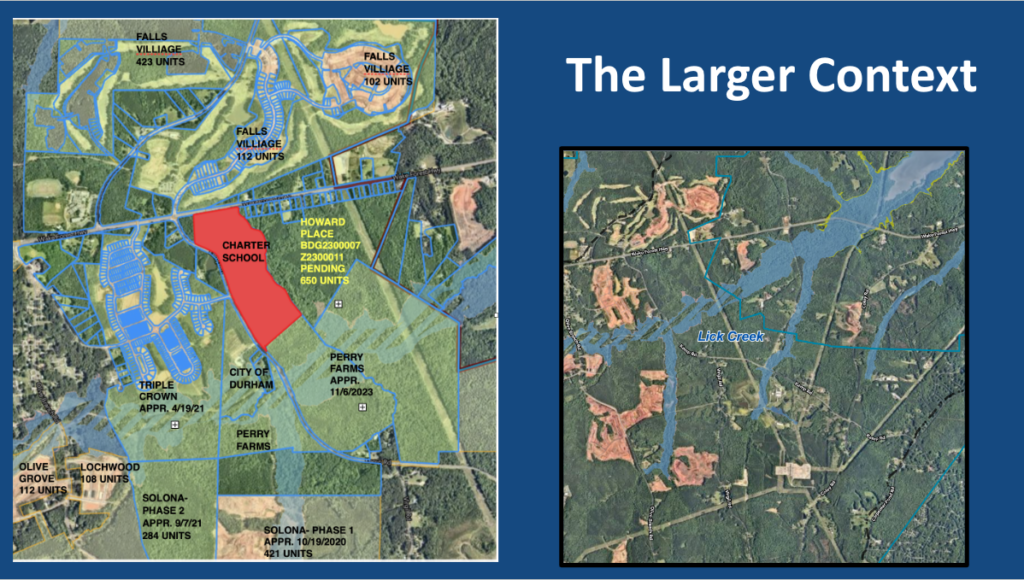
At least one stream feeding into Lick Creek runs thought the property. The stream, Sam said, flows through the proposed site, as well as the Lick Creek Bottomlands Natural Heritage area, before it reaches the creek.
Over the past two years, Sam has tracked the impact of development in the Lick Creek watershed, conducting biweekly sampling that exhibits how erosion from clear-cut sites affects water quality. The levels of turbidity at several sites located downstream of developments under construction consistently exceed state standards (*for an explanation of turbidity, scroll down). In September 2023, the Southern Environmental Law Center, on behalf of Sound Rivers, filed a lawsuit to stop ongoing pollution from a developer into Martin Branch, a tributary of Lick Creek. Lick Creek, itself, flows into Falls Lake, a drinking water source for Raleigh and surrounding communities.
Those deemed expert witnesses and people who “have standing” (live within a certain proximity) were allowed to speak to the board during Tuesday’s hearing, which included Sam and a neighbor of the proposed site for the Durham Charter School.
“She presented a lot of concerns, including environmental and water-quality concerns. She also talked about concerns with traffic and access, and fire and EMS. This area is not equipped yet. It doesn’t have the social infrastructure to support this level of growth,” she said.
No decision was made by the Durham Board of Adjustment on Tuesday.
You can watch the slide presentation Sam gave to the board below.
Did you enjoy this article? If you’re not already signed up for Sound Rivers’ eNews, you can keep up with this issue and more by signing up here!
*Turbidity is the relative clarity of a liquid. It is the measurement of the amount of light scattered by material in the water when a light is shined through a water sample. The higher the number, the less light is penetrating the water, which decimates ecological productivity, recreational values and habitat quality. In streams, like those near housing developments currently under construction in the Durham area, increased sedimentation can result in harm to habitats for fish and other aquatic life. Particles also provide attachment places for other pollutants, notably metals and bacteria, which keep pollutants in the water instead of settling in the soil. Turbidity readings are therefore used as an indicator of potential pollution in a water body, according to the United States Geological Survey website.
Related News
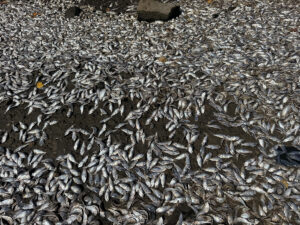
Neuse fish kill expected to extend beyond holiday weekend
July 3rd 2025
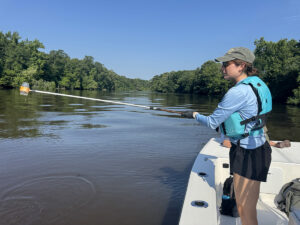
Swim Guide fails prompt Maple Cypress investigation
July 3rd 2025

Riverkeeper, town partners root out source of Smithfield sediment pollution
July 3rd 2025
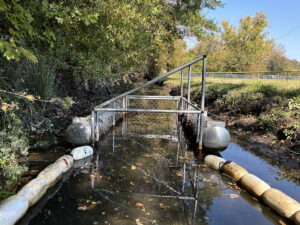
Trash trap No. 12 approved for Smithfield
July 3rd 2025
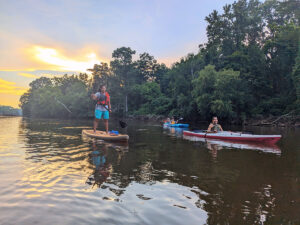
Sunset River Paddle fundraiser boosts Water Quality Fund
July 3rd 2025

Riverkeepers host quarterly Water Watch meeting
July 3rd 2025
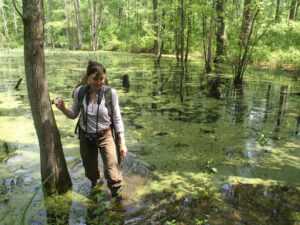
Public hearing will determine the fate of many NC wetlands
June 26th 2025
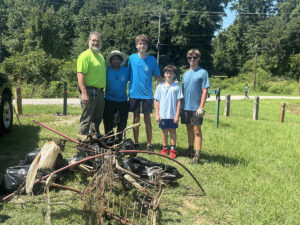
Clayton gets first official trash-trap cleanout
June 25th 2025
